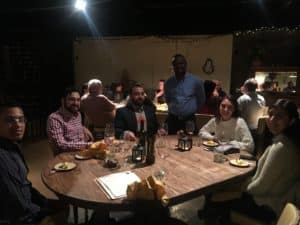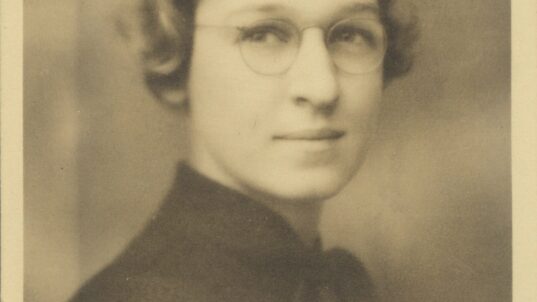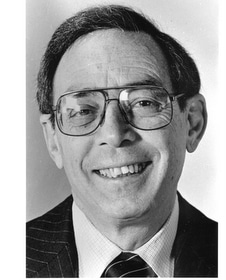Community-based learning is education that takes place off college campus. With community partners as co-educators, students and faculty collaborate on shared learning, co-construction of knowledge, and civic action projects. This year, the Interactivity Foundation has been engaging with scholars and practitioners of community-based learning to learn more about this process and examine what role, if any, exploratory discussion might have in this work.
This summer, I helped to facilitate portions of the Community-based Global Learning Institute at Haverford College, August 7-9, 2018. This institute brought together approximately 40 faculty, staff, and administrators from around the northeastern region to explore best practices in the fields of service-learning, community engagement, and community-based (global) learning. Participants were invited to dive deeply into community-based learning pedagogy, principles of Fair-Trade Learning, assessment (learning goals, impact, community relationships), and creating institutional support for this work.
There are many similar themes in this field of work and the IF discussion approach. Like IF, this pedagogy advances learning in partnership with community members and organizations. It critically calls into question who owns knowledge. It turns epistemological assumptions on its head. It’s an experiential learning model that encourages community-engagement and sustained community conversation. But not just any kind of conversation—conversation that seeks out divergent thinking, encourages critical reflection and alternative perspective taking, and is sensitive to dynamics of conversations that tend to replicate unjust power dynamics. Much like an IF discussion, this work tries to avoid allowing the loudest or most eloquent voice in the room from dominating the discussion—and foreclosing the imagination of the group.
Earlier in the year, I had the opportunity to engage in 10 days of sustained exploratory discussion with scholars and practitioners of community-based learning from around the world. During the week long Seeking Global Citizenship Symposium at Haverford College followed by the Global Service Learning Summit at Notre Dame, I was able to engage in exploratory discussion with faculty from South Africa, Ghana, Mexico, Guatemala, Malawi—to name only a few, to discuss the role of formal education in preparing students to be more engaged citizens of the world. We discussed what it means to be global citizens. These conversations were weaved together with students and directors of nonprofits who mentor student interns during summer or year-long appointments. These community-based organizers could speak to experiences with cultural humility, shock, and sensitivity. Through working with organizations that support women’s’ rights in Morocco, and sustainable farming in Trinidad and Tobago, the empowerment of girls in rural West Virginia, or refugee resettlement in Mexico—these students and community-organizers help us to advance deeper, engaged, sustained discussions on what it means to live together on this one planet. Discussions with this global community continue by way of online bimonthly discussions, co-facilitated by Janice McMillian in South Africa and myself in Pennsylvania.


